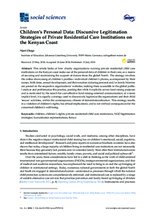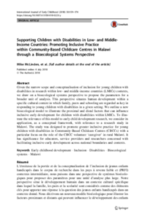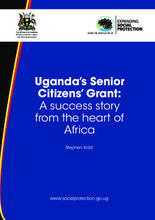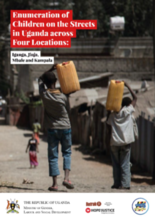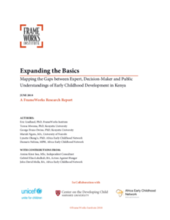Displaying 281 - 290 of 665
The aim of the systematic review described in this article was to determine the outcome of child maltreatment in long-term childcare and the scope of the evidence base in this area.
This article looks at how charity organizations running private residential child care institutions on the Kenyan coast make use of the personal data of children in their care, as a means of securing and maintaining the support of donors from the global North.
This study draws on a bioecological systems perspective to propose the parameters for a broader unit of analysis of inclusion for young children with disabilities in research within low- and middle-income countries (LMICs) contexts.
This project, designed to explore parenting practices across various regions within Zambia, aims to further advance ongoing efforts to support early childhood development (ECD) by informing parenting programmes intended to promote optimal child development.
The purpose of this study was to establish the prevalence of symptoms of anxiety disorder, depression and post-traumatic stress disorder (PTSD) among adolescents with a history of abuse and neglect living in charitable children’s institutions (CCIs) in Nairobi County, Kenya.
The authors of this paper sought to explore the psychometric properties and validity of the Achenbach Youth Self-Report and Child Posttraumatic Stress Disorder Symptom Scale among orphans and vulnerable children (OVC) living in Lusaka, Zambia.
In this paper Development Pathways’ Stephen Kidd discusses the success of Uganda’s Senior Citizens’ Grant (SCG), with evidence from the evaluation of the programme.
The goal of this research project is to inform policy and practice in Uganda by providing an estimate of the number of children on the streets in Kampala, Jinja, Iganga and Mbale; insight into the characteristics of these children; and exploration of children’s perspectives of their engagement on the streets.
This article aims to explore the experiences of Ethiopian unaccompanied and separated migrant children in Yemen.
This report considers a set of key overlaps and gaps in understanding of children’s early development and perception among experts, the Kenyan public, and people who work and make decisions in the early childhood development (ECD) sector in Kenya.

